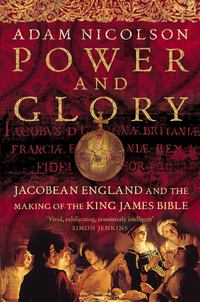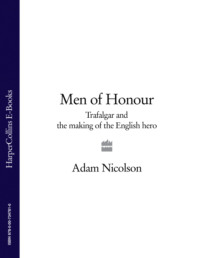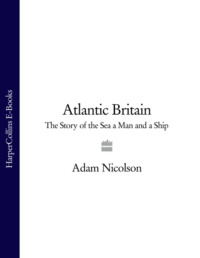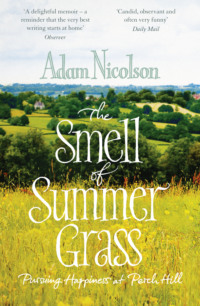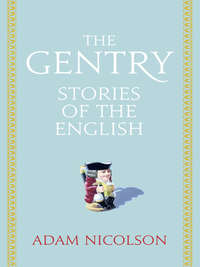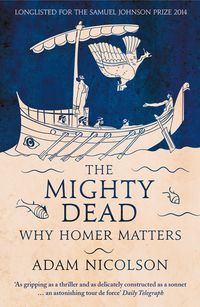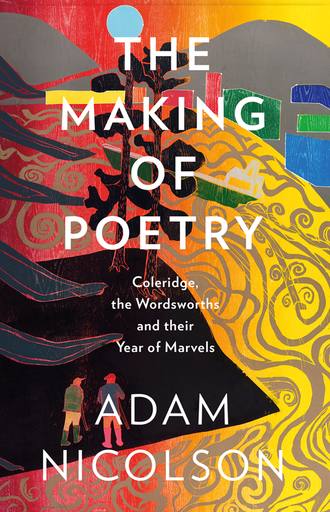
Полная версия
The Making of Poetry: Coleridge, the Wordsworths and Their Year of Marvels
She saw a poet in him. ‘He is a wonderful man,’ she wrote to her great friend Mary Hutchinson, who had been staying with them at Racedown and had left only a day or two earlier.
His conversation teems with soul, mind, and spirit. Then he is so benevolent, so good tempered and cheerful, and, like William, interests himself so much about every little trifle. At first I thought him very plain, that is, for about three minutes: he is pale and thin, has a wide mouth, thick lips, and not very good teeth, longish loose-growing half-curling rough black hair. But if you hear him speak for five minutes you think no more of them. His eye is large and full, and not dark but grey; such an eye as would receive from a heavy soul the dullest expression; but it speaks every emotion of his animated mind: it has more of ‘the poet’s eye in a fine frenzy rolling’ than I ever witnessed. He has fine dark eyebrows, and an overhanging forehead.
In return she sparkled with her own sharp-edged, discontinuous brilliance, a flashing light in her eyes, her mind not a grand instrument of connection like Coleridge’s, nor vastly present to itself like Wordsworth’s, but full of bright remembered visions, exactly recalled, seen in detail: the sky-blue hedge sparrows’ eggs in a childhood nest, the bilberries in the bowl of a black porringer. She had the gift of what Keats would later call ‘that trembling delicate and snail-horn perception of Beauty’, precise and sensitive, alert to variation. The sensitivity meant, as Coleridge noticed, that her horns would draw in at the slightest touch, and she would easily weep at things seen or remembered. She often felt her heart was full. Her separation from her brothers in childhood meant that she had been ‘put out of the way of many recollections in common’, and that separation only served to heighten the value of closeness for her. She and Wordsworth now shared their everyday life, but they also shared the experience of a mutual absence when young, and then the denial by the Lonsdale estate of their inheritance, the compulsory impoverishment in which they were both now living.
So much had been denied to them, and so much had been broken, that it was her duty to tend to her brother. She was both stronger and weaker than him. He may have been, as he wrote, the mountain and she its flowers, yet he was broken and she was the mender of him. She loved him but she could admonish him, just as later she could tell Coleridge not to publish an unkind review, as it was beneath him and its value as criticism was not greater than its cruelty.

Dorothy on the path of poetry
She saw her own and her brother’s situation clearly enough: ‘We have been endeared to each other by early misfortune,’ she told a friend. Their love may or may not have sublimated the sexual – there is no evidence at all of anything approaching incest – but the form it took was admiration, protection and education, enabling him to leave behind the extremes of his broken self within her shelter and become the greater and more vulnerable poet she believed him to be. He had been addicted to a kind of exclusive masculinity, and only within her care, the shield of her above and around him, could he find the courage to melt and grow.
In The Prelude he said as much to her:
I too exclusively esteemed that love,
And sought that beauty, which as Milton sings,
Hath terror in it. Thou didst soften down
This over-sternness; but for thee, sweet friend,
My soul, too reckless of mild grace, had been
Far longer what by Nature it was framed –
Longer retained its countenance severe –
A rock with torrents roaring, with the clouds
Familiar, and a favourite of the stars;
But thou didst plant its crevices with flowers,
Hang it with shrubs that twinkle in the breeze,
And teach the little birds to build their nests
And warble in its chambers.
Their intimacy was real. ‘Neither absence nor Distance nor Time can ever break the Chain that binds me to my Brothers,’ she wrote. They would wrap up together inside a single coat to stay warm. Her breath, he said, ‘was a kind of gentler spring/That went before my steps’.
Dorothy, or Dolly as she had been called by her parents, loved robins, and there was something robin-like about her: the needle brilliance of their song, their alert restlessness, the tiny, flicker-instant acuity of body and being. She was not sweet in her person, more ardent than that, with a gypsy wildness in her, so that her eyes burned and flashed for almost anyone who met her, like the gold leaf in the electrometer that Coleridge saw.
It was this quality, her ability to respond to the instant, with an immediate attachment to what was in front of her eyes, that allowed her to teach the men around her how to see the world. Joseph Gill’s diary shows that he bought her a notebook when they were at Racedown, but it has disappeared, and there is no written record of what she had been seeing there, as there is for part of the following year in Somerset. But when in March 1798 she wrote in her journal that ‘A quiet shower of snow was in the air,’ that is a moment, as Pamela Woof has written, that tells you who she was. The snow in Dorothy’s perception is ‘simultaneously both hovering and falling; the silent snow stays and does not stay in the air. Dorothy conveys at once the temporary and the timelessness.’ Those moments of transient beauty were part of her daily experience. She saw ‘the moonshine like herrings in the water’, and the moonlight lying on the hills like snow. Categories blurred: the change of season became an active, animated process: ‘The Fern of the mountain now spreads yellow veins among the trees’; the stars were ‘almost like butterflies or skylarks in motion & lightness’. She heard the ‘unseen birds singing in the mist’ and saw the ‘turf fading into mountain road’. She loved to look for nests in the privet and the roses; everything was part of a naked meeting with an exactly encountered and constantly shifting world.
There was nothing saccharine about this. She loved ‘the strength with which nature has endowed me’, and was indifferent to the demands and limits of femininity, loving solitary walks alone in the moonlight when in her early twenties, not submitting to the kind of ignorance thought suitable for many girls of her class and upbringing, socially engaged, giving money to beggars. She was busy, practical, organising a household around the poet who lived alongside her, broiling the gizzard of a hen with some mutton for his supper, baking bread and pies, sewing and laundering, writing letters, copying out his verses.
Over this entire relationship, of such intimacy and such mutual interpenetration – and with such undisputed dominance of male over female – hangs the question of Annette Vallon and her daughter Caroline. Racedown was a mirror-image of the situation Wordsworth had left behind in France. He and his sister were now living together in Dorset as he and the mother of his child were not in Blois. He was looking after and tending to a young child, Basil Montagu, as he was not his own daughter in France.
Guilt stalks these arrangements, and Dorothy’s unqualified admiration of and service for her brother look like the necessary balm for a man besieged by it. Racedown was a parodic rerunning of the married life William had not begun in France. He had saved both Dorothy and Basil from the isolation and difficulty to which they might otherwise have been condemned, but to save them he had left Annette and Caroline to the same fate.
Did Wordsworth abandon one woman and child to attend to another woman and child? And for his own convenience? Or was it that only with Dorothy, and not with Annette, could he see his way to being the poet he knew he wanted to be? Writing in The Prelude of his years of despair at Racedown – and never admitting in that poem or anywhere else to the existence of Annette or her child – he very nearly said that. Dorothy was his saviour because she saw a poet in him and was prepared to fight for that poet. She was
the belovèd woman in whose sight
Those days were passed – now speaking in a voice
Of sudden admonition like a brook
That did but cross a lonely road; and now
Seen, heard and felt, and caught at every turn,
Companion never lost through many a league –
Maintained for me a saving intercourse
With my true self (for, though impaired, and changed
Much, as it seemed, I was no further changed
Than as a clouded, not waning moon);
She, in the midst of all, preserved me still
A Poet, made me seek beneath that name,
My office upon earth.
It is the most beautiful metaphor of love, of a woman as a mountain brook coming and going along the same valley as the road the poet is taking, bringing her irrigating, generous presence to the drought of his journey and his despair. In later revisions he added the beautiful suggestion that in the darkness of the waning moon, ‘She whispered still that brightness would return’. The moon would wax again. Love is in that line, love given and heard. There is a suggestion, as often in what he would write about her, of suppressed desire, in the physical intimacy of ‘Seen, heard and felt, and caught at every turn’, in the giving liquidity of her presence, in the brook’s gentle washing of him and perhaps even in the atmosphere around ‘intercourse’, which by the late 1790s had already begun to carry the implications of ‘sexual connection’. There is no suggestion of equality between them. She is the servant, he the walking hero; she quietly attends, he struggles with his greatness. He relies on her and dominates her; he uses her and she conforms to the idea that she is there to be used. One version of her usefulness is the strictness with which she can admonish him. Both master and servant are happy for one to be reproved by the other, and to understand that admonition as a form of love.
Here then, on this summer evening in early June 1797, assembled together in the small parlour of Racedown, with the oil cloth on the floor, and an air of warmth and mutual affection and value in the room – all his life Coleridge would remember the welcome they gave him this evening – the sun dropping outside, these three people, each in their varied, multi-layered conditions of longing and despair, genius and trouble, sit down together to talk, to discuss what they have written and seen, what they might write, what they have been and what they might yet be. It is the seeding moment of this year.
Coleridge came to love and revere them both, as one sensibility in two people. Much later, he wrote to Dorothy about their brother, who had come along with him and Wordsworth on a walking tour through the north of England:
Your Br. John is one of you; a man who hath solitary usings of his own Intellect, deep in feeling, with a subtle Tact, a swift instinct of Truth & Beauty.
One of you: as if ‘Wordsworth’ is not the name of a person but a way of being, not entirely communicative to others, with a prompt tactility but unseen depths, both a flickering quickness and an immanence in all of them, as if their dwelling was some way far below the surface, profoundly attractive and curiously removed.
Sit in the valley of the little River Sydeford below the house, in the shadow of its willows and alders, with the evening hatch of olives speckling the yard of air above the water, the cattle grazing in the last sunlight on the sloping fields, their long-bodied shadows patched across the pasture, and an owl announcing itself in the wood across the valley, and it is not difficult to see the three of them there beyond the darkened panes of the parlour windows.
The owl is muted, like a trumpet with a cushion in its mouth. The robins are still singing in the hollies, one on each side of the river, bright as water. Next to them the owl is throaty-chesty. If a cough could sing, it would sound like this.
There is a sheet on the table, for want of a tablecloth. Coleridge is asleep upstairs. Wordsworth at the table looks across to Dorothy, where she is transcribing from his notebooks. Rough pages lie torn out between them, and she is copying in her neater more regular hand from his tragedy The Borderers.
He is looking at her, but there is a vacancy in his eye and he is looking across her, through her, his own pen poised over a notebook, as she is busy copying.
What is this word? she asks. Sublimity?
No, no. Sterility.
They sit there with a kind of contentment between them, no tension, a jointness, ease.
What does this say Will? I am the devil?
No, he half laughs with his outgoing breath. No, ‘I am the dark.’
The dark? She laughs at him.
It runs on to the next line: ‘I am the dark/Embracer of the superlunary world.’
As he speaks, the life-flame in him is barely visible. Only now and then, as some breeze blows over him, her breeze, a movement and change becomes apparent, a reanimation of the suspended life, a breath across coals. Wherever his vacant eye looks, he can see through to the bones and the soft inner parts. But that is because he is also transparent to himself, and in himself finds the boneyard of the past, a littered emptiness, the ashy remains of what he thought he might have been. Behind it, distant, is some other, larger and half-forgotten mountain world, his time in the Alps or in north Wales, his childhood in the Lakes. In certain lights he looks as gaunt as a new-dropped lamb.
3
Searching
June 1797
Coleridge stayed at Racedown for the next three weeks, and the talk began. For months Wordsworth’s poetry had been fragmentary, fierce and strange, moving between the worlds of doubt and guilt, finding significance on the borders of madness. He read his poems to Coleridge. A set of sketches and revisions of one of them has survived on the reverse side of the same large folio sheet as his lines on the baker’s cart, with further thoughts and rethoughts of it on a neighbouring sheet, both now in the Wordsworth archive at Dove Cottage.
Looking at these repetitive, hesitant drafts of something Wordsworth would come to call ‘Incipient Madness’ is like observing a man feeling for poetry with his fingertips in the dark.
There were at least twelve uncertain and twitchy stages. From the first moment are three words:
You see the
It is a tiny eruptive nodule of poetic substance focused on a ruined building, a small cottage or shed.
He pulls back a foot or two and starts again:
Though open to the sky yet stained with smoke
You see the swallows nest has dropp’d away
A wretched covert ’tis for man or beast
And when the poor mans horse that shelters there
Turns from the beating wind and open sky
The iron links with which his feet are clogg’d
Mix their dull clanking with the heavy sound
Of falling rain a melancholy
That has come easily, without correction, on this otherwise heavily corrected sheet, so materially realised that it seems likely to have been something seen by Wordsworth on his walks in Dorset. This poetry is already autobiographical, and its atmosphere describes the man Wordsworth was in his darkest hours. ‘You’ is ‘you’ the reader or the passer-by; it is also Wordsworth himself, and the ‘you’ also seems identified with the horse and his hobbling chains, both man and animal a prisoner, dulled by the conditions life has imposed, sheltering in a wreck of a building for which all hope is gone and which even the swallows have deserted. Coleridge accused Wordsworth of being a ‘spectator ab extra’ – an observer from outside whatever conditions or predicament he was describing – but here the ‘covert’, the hiding place, is wretched for man or beast, no matter which, and all these creatures – Wordsworth, the horse, the poor man, the swallow, you – are inhabiting the same desolate landscape.
But the setting is not entirely true. There is a whiff of cliché in the air. The magazines of the 1790s were full of tragic scenes of rural poverty, and the word ‘melancholy’ seems to bring the movement to a halt. So Wordsworth stops and tries again:
And when the poor mans horse that hither comes
For shelter turns ab
That too, for whatever reason, is a dead end. And he takes another run:
And open sky the passenger may hear
The iron links with which his feet are were clogged
Mix their dull clanking with the heavy sound
Of falling rain, a melancholy thing
To any man who has a heart to feel. –
Those final words at last ring with an air of Wordsworth’s own truth. That is his subject: the grandeur in the beatings of the heart.
But whatever this poem is, it won’t come clean. He introduces his own recent visit to the cottage:
But two nights gone
I chanced to I passed this cottage and within I heard
The poor man’s lonely horse who that hither comes
For shelter, turning from the beating rain
And open sky, and as he turned, I heard
At one level the horse was a ‘who’, but Wordsworth revises that to the more conventionally impersonal ‘that’. The various elements and players need to be organised: himself, the horse, the place, the stormy night, the connections between them. The revisions now turn scratchy and directionless:
I heard him turning from the beating wind –
And open sky and as he turn’d I heard
But he cannot decide what the horse is doing there: ‘to weather the night storm’ or ‘to weather out the tempests’? ‘Within these walls’, ‘within these roofless walls’, or ‘these fractur’d walls’? Then, at draft twelve of these few recalcitrant lines, another set of ingredients appears which suddenly mobilises this dark fragment of experience:
But two nights gone, I cross’d this dreary moor
In the still clear moonlight, when reached the hut
I looked within but all was still and dark
Only within the ruin, I beheld
At a small distance on the dusky ground
A broken pain which glitter’d to the moon
And seemed akin to life. – Another time
The winds of autumn drove me oer the heath
Heath in a dark night by the storm compelled
the hardships of that season

I crossed the dreary moor
Those lines are still in thrall to an earlier way of doing poetry – ‘dusky’ is dead jargon; ‘glitter’d to’ is patently false language – but that broken pain/pane of glass on the dark floor of the ruined shed, a lifeless thing that seems to be full of life, grips and obsesses him:
I found my sickly heart had tied itself
Even to this speck of glass – It could produce
a feeling as of absence
on the moment when my sight
Should feed on it again. For many a long month
I felt Confirm’d this strange incontinence; my eye
Did every evening measure the moon’s height
And forth I went before her yellow beams
Could overtop the elm-trees oer the heath
I sought the r and I found
That speck more precious to my soul
Than was the moon in heaven
Here now at last are the elements for a strange and lonely poem of experience on the edges of despair, an act of empathy. It is driven by an obsessive and disordered frame of mind, dissociated from the normalities of human love and community, in a world where, in its final form, a looming morbidity infects and pollutes all living things. It is a poem written by the desperate man Coleridge had come to cure.
Incipient Madness
I crossed the dreary I crossed the dreary moor
In the clear moonlight when I reached the hut
I enter’d in, but all was still and dark
Only within the ruin I beheld
At a small distance, on the dusky ground
A broken pane which glitter’d to in the moon
And seemed akin to life. There is a mood
A settled temper of the heart, when grief,
Becomes an instinct, fastening on the all things
That promise food, doth like a sucking babe
Create it where it is not. From this hour time
I found my sickly heart had tied itself
Even to this speck of glass – It could produce
a feeling as of absence
on the moment when my sight
Should feed on it again. For many a long month
I felt Confirm’d this strange incontinence; my eye
Did every evening measure the moon’s height
And forth I went soon as her yellow beams
Could overtop the elm-trees. Oer the heath
I went, I reached the cottage, and I found
Still undisturbed and glittering in its place
That speck of glass more precious to my soul
Than was the moon in heaven. Another time
The winds of Autumn drove me o’er the heath
One gloomy evening: By the storm compell’d
The poor man’s horse that feeds along the lanes
Had hither come within among these fractur’d walls
To weather out the night; and as I pass’d
While restlessly he turn’d from the fierce wind
And from the open sky, I heard, within,
The iron links with which his feet were clogg’d
Mix their dull clanking with the heavy sound noise
Of falling rain. I started from the spot
And heard the sound still following in the wind
These lines, firmly in a gothic tradition, nevertheless stand as a challenge to everything the eighteenth-century inheritance of elegant rural landscapes might have suggested or proposed. The heart of what Wordsworth sees is not the well-framed picture but the broken pane of glass, and the haunted sound of chains blown towards him on the vast and homeless winds of heaven. There is no connection yet to any larger significance – any movement beyond the gothic – that connection would have to wait until Coleridge had changed his relationship to the world.
There was one more poem, his most recent, that Wordsworth was keen to have Coleridge hear, and it marked an emergence from this darkness. He read him this first version of ‘The Ruined Cottage’, not giving it to him to read but making sure he heard it from his own lips. It is a descendant of the dark poetry which had poured out of him over the previous six or nine months, but this is different. In ‘The Ruined Cottage’, suffering and the disordered world are seen in tranquillity. The gothic furniture has been dispensed with, much of it hived off into ‘Incipient Madness’. Instead, a calm and beneficent air emerges from a sad and simple story of suffering and failure, nothing over-heightened, no melodramatic lighting, but a rich simplicity in language and setting by which the place itself of the ruined cottage and its surroundings comes to portray the people whose lives it describes. His previous rhetorical habits have dropped away. Abstractions and pat responses are banished in favour of the tender, corporeal realities in the life of a poor woman and her family.
In Wordsworth’s poem, the poet comes across a ruin and meets an old man, a pedlar, who had known the place many years before, when happiness had glowed from its windows. ‘I see around me here,’ the Pedlar says,
Things which you cannot see. We die, my Friend,


